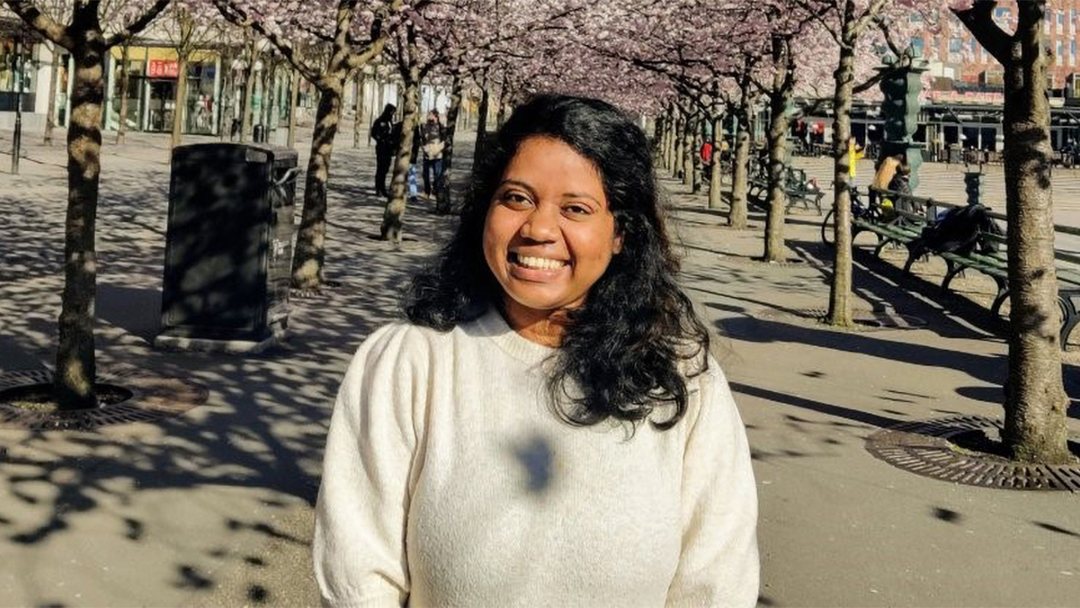Degree project takes aim at Covid-19

Aashlesha Chekkala came to KTH to prepare for a career in resource recovery from wastewater. That changed when she began her degree project working with Covid-19.
The coronavirus pandemic has left many people feeling helpless. But for the research community, the crisis has also sparked creative problem-solving and cross-disciplinary collaboration. In her degree project at KTH, Aashlesha Chekkala, a master’s student in Chemical Engineering for Energy and Environment, got a chance to help make a difference. In June she joined a research team working on an early-warning system that monitored the spread of SARS-CoV-2 in real time, without relying on results from individual testing.
We caught up with Chekkala to ask about this exciting degree project.
Tell us about the overall project.
The project was monitoring sewage water for circulation of SARS-CoV-2 virus in the local population and the rate of infection. We collect the wastewater samples, concentrate them using centrifugation and trace the RNA, which are assayed through the qRT-PCR technique, to estimate the prevalence of SARS-CoV-2. This method serves as an early waning tool.
What was your role in it?
Once we receive the wastewater samples, it is necessary to concentrate them so that we can analyze the SARS-CoV-2 in the wastewater samples. I was responsible for the concentration by centrifugation of the samples.
Text: David Callahan


